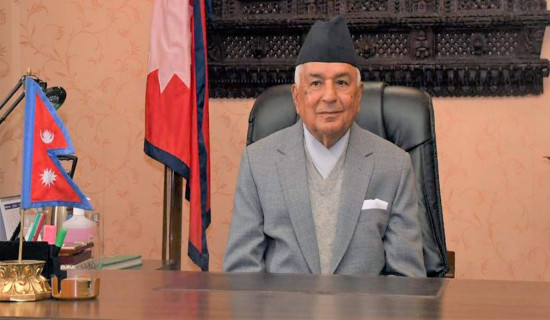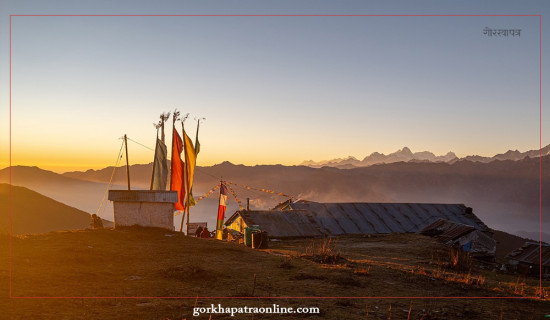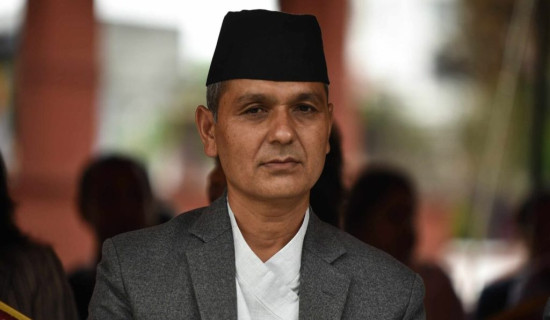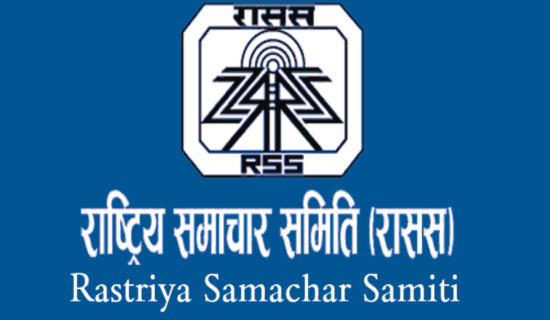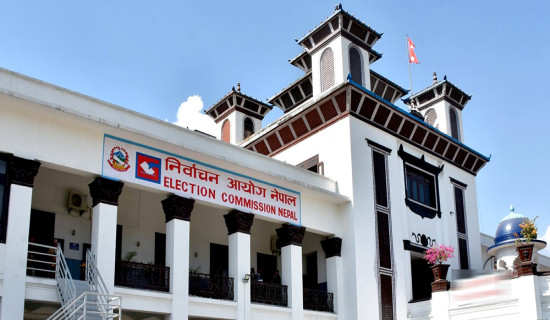- Thursday, 19 February 2026
Deal On Fielding Joint Candidates
Just four days before the filing of candidacies for the upcoming local elections, the five ruling parties have reached an understanding to share the posts of mayor and deputy mayor for six metropolises and 11 sub-metropolises among them.
Top leaders of the Nepali Congress (NC), CPN-Maoist Centre, CPN - Unified Socialist, Janata Samajwadi Party-Nepal (JSP-N) and Rastriya Janamorcha have forged a consensus after holding a series of meetings. Prime Minister and NC president Sher Bahadur Deuba, Maoist Centre Chairman Pushpa Kamal Dahal Prachanda, Unified Socialist Chairman Madhav Kumar Nepal, JSP-N Chairman Upendra Yadav signed an agreement regarding this on Wednesday.
In line with this deal, the ruling alliance will have their common candidates in the aforementioned 17 local levels. It shows that the governing alliance wants to extend the crucial political collaboration during the election and beyond. safeguard the hard-earned constitution and institutionalise the inclusive democracy.
Based on the agreement, the NC is going to field its candidates for the mayoral posts of three out of six metropolises (Kathmandu, Lalitpur and Biratnagar) and seven of 11 sub-metropolises (Dharan, Itahari, Kalaiya, Butwal, Tulsipur, Nepalgunj and Dhangadhi). Similarly, NC candidates will vie for deputy mayoral posts in three metropolises (Birgunj, Bharatpur and Pokhara) and three sub-metropolises (Jeetpur Simara, Ghorahi and Hetauda). The ruling alliance has agreed to allot the mayoral posts of the Pokhara Metropolis and Hetauda Sub-Metropolis to the Unified Socialist.
It is also fielding its candidates for the deputy mayoral post in Kathmandu Metropolis, Itahari, Butwal and Tulsipur Sub-Metropolises. Meanwhile, the JSP-N has been given the mayoral positions in Birgunj Metropolis and Janakpur Sub-Metropolis. But the Rastriya Janamorcha has not got any mayoral and deputy mayoral positions.
The deal to divide seats among the ruling parties in these metropolises and sub-metropolises signals that they are going to contest the local polls in a collaborative manner in many other municipalities and rural municipalities as well. Since the beginning, Prime Minister Deuba had been in favour of keeping the alliance intact in the coming three-tier elections-- local, provincial and federal.
But some NC leaders had wanted it to go to the polls alone, arguing that it had chance to emerge victorious in the local polls in most of 753 local levels in view of a vertical split in the erstwhile Nepal Communist Party and CPN-UML. However, the decision to file the common candidates in the metropolises and sub-metropolises has created a positive vibe among the ruling parties, their cadres and well-wishers nationwide. This has also cleared the rumours that the local polls could be deferred.
With this headway, the ruling parties are now encouraged to intensify their election campaigns across the country. The opposition parties are also actively involved in the election process. As key stakeholders, the parties have been busy formulating their poll manifestoes, choosing candidates and canvassing. The election code of conduct has already come into effect. The Election Commission of Nepal (ECN) is monitoring whether the political parties and other stakeholders are sincerely following the poll code.
The commission has called on all the political parties, cadres and others not to produce, display, sell and distribute materials bearing poll symbols of political parties or candidates. Holding free and fair polls is possible only when all the parties and individuals abide by the rules. Voters should also remain cautious and exercise their voting rights without fear or favour.











